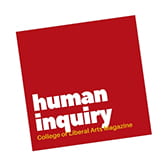In the United States, Major Depressive Disorder (MDD) is one of the most commonly diagnosed mental disorders. It causes severe symptoms that affect how people feel and think and that interfere with their ability to live and function. Millennials–or young adults ages 18 to 25–are most often diagnosed with MDD. Social media are also popular with this age group. Social media offer many positive benefits, but it can pose negative psychological consequences.
A new study by faculty at Texas State University recently found that three social media behaviors typify individuals who meet criteria for MDD–social comparisons, social media addiction, and social interaction. The study– “Social comparisons, social media addiction, and social interaction: An examination of specific social media behaviors related to major depressive disorder in a millennial population” published in the Journal of Applied Biobehavioral Research–was conducted by Anthony Robinson, Aaron Bonnette, and Dr. Natalie Ceballos in the Department of Psychology; Dr. Yongmei Lu in the Department of Geography; Dr. Stephanie Dailey in the Department of Communication Studies; and Dr. Tom Grimes in the Department of Journalism and Mass Communication.
Study participants who met criteria for MDD were more likely to compare themselves to others who seemed better off than they were. They were also more bothered by being tagged in unflattering pictures. They also scored higher on the Social Media Addiction Scale. Finally, they were also less likely to post pictures of themselves with other people and reported fewer followers.
The study exposes some negative psychological habits associated with social media, so the study also made some recommendations for social media use. People should monitor how they use social media. They should engage in behaviors that reduce psychological stress such as limiting social media usage, unfollowing negative individuals or groups, and showing gratitude for the little things.
